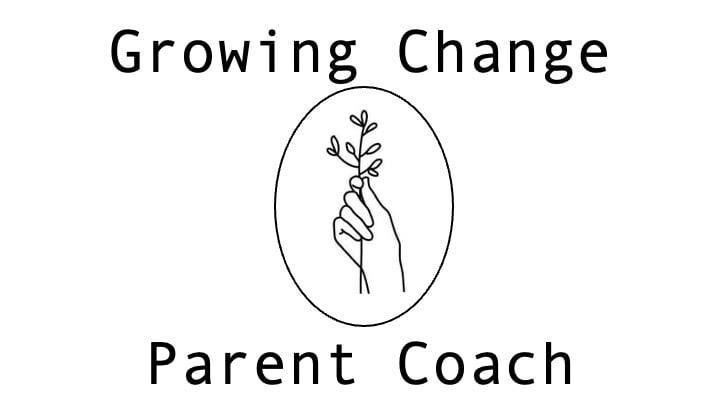It’s six o’clock in the morning. The sun has barely risen, it’s quiet outside and not so quiet inside. The stirring and calling have begun. We silently beg the universe for a few minutes of peace so we can move slowly and ease into our day. Our child has another plan for us. Their day is ready to begin. Whether you have a baby, toddler, or young child, children are early risers. We start out the day feeling okay and have patience in our reserve tank. And then it happens. The chaos begins.
Patience and parenting don’t easily co-exist.
Whether it's the morning rush to get to school and work on time, the bedtime delays and stalling, the after-school running around to activities, our kid's various health appointments, and the dinner time crunch, as parents, we’re in a constant state of motion. We know what we need to do, we have a sense of the timeframe to get it done, and then our child comes in and circumvents the whole plan. The tantrum, the sibling issues, and the ignoring of our requests escalate into yelling. We feel like we’re just not heard or listened to unless we scream. Our yelling escalates into more tantrums. Are we screaming to be heard or are we screaming in anger and frustration? Likely, it's both.
Patience is a power tool that we absolutely need in parenting. Patience helps us maintain our cool, our own ability to regulate our own emotions, and be sturdy, calm leaders. It’s a necessity in parenting.
Some of us are inherently more patient than others. We have a capacity that allows for a lot of commotion and action. Many of us just don’t have it. We are easily triggered and easily sent into anger and frustration. With intention, patience can be taught and learned. Like all behaviors, it’s changeable with a positive mindset and a willingness to change.
I really enjoyed reading Raising Good Humans, A Mindful Guide to Breaking the Cycle of Reactive Parenting and Raising Kind, Confident Kids By Hunter Clarke-Fields.
 |
When we model patience, we teach our child a life skill.
Everything we say and do, teaches. When we yell and scream, our child learns that behavior. When we respond calmly, we teach our child how to respond calmly too.
It’s much easier said than done.
How do we get to this place that feels so unattainable, so far off, and impossible to reach? It takes practice. Lots of consistent practice. And a filling of our own vessel so that we have this reservoir to share.
Patience is a state of mind. It’s a virtue. Whether we’re in traffic, waiting on a super long checkout line, or are put on hold forever on a phone call, our patience is challenged. We can use positive self-talk talk, realize that honking won't make the traffic pattern change. Yelling at the cashier at the checkout line won't make it go any faster, and the hold on the phone, well, there’s nothing to do other than wait or hang up. We use positive self talk knowing we can’t change certain things. We can change how we react or respond.
Depleted Mother Syndrome is real. We work full-time outside and inside the home. The demands don’t stop, our capacity to keep up diminishes, and our resources are limited making us depleted, worn out, burnt out, and emotional. It’s normal and it’s true.
What are your triggers?
Identifying your personal triggers is a great place to start.
Are you hungry, and as a result have a short fuse?
Sleep deprived? This is a super common trigger for impatience.
Kids endlessly asking, demanding and not taking no for an answer?
Feel ignored and disrespected?
Not getting what you want?
Messy house and clutter?
Repeating yourself?
Being late?
Screens and devices have hijacked your kid's attention?
We lose our patience with any one of these feelings. We may also have expectations that are not in alignment with our child’s abilities at this time, expecting them to behave or to follow instructions that they simply don’t know how to do just yet. We too want what we want.
Patience can be cultivated and grown.
It begins with us and how we listen to our own needs. Self-care makes patience possible. What do you need more of and less of? Feed yourself with kindness and love.
Get enough sleep. How can an extra hour or two of sleep be made possible?
Step away from the moment, when you are able. Walk away, take slow, long, deep breaths, and get centered. Then return ready to continue, from a place of calmness.
A child’s job is to test the boundaries and to see where their power lies. Know this to be true and that it is a part of their development. It’s not you, it’s them.
Slow down. A lot. What’s one thing that can be taken off your to-do list? How can the schedule be made a bit simpler? What if you gave yourself 15 extra minutes? Children live in the moment. Rushing and hurrying are adult behaviors.
Listen to your child. Why did your three-year-old just change their outfit for the third time? What is their need and their want? Is it texture, a particular way of expressing themselves, comfort, favorite outfit no matter the season or weather? Can you say yes instead of no?
Allow yourself to be imperfect and flawed in your parenting. There are no perfect parents and there never will be. We all make mistakes and we all blow a fuse from time to time. It’s perfectly normal.
Apologize as needed. “I’m sorry I yelled like that. I needed to walk away and get calm. I’ll do that the next time.”
Use positive self-talk and mantras that give a positive message. “I am in control”
“My child needs me to model what calm looks like.” “I don’t sweat the small stuff.”
Problem-solve with your child and collaborate with them. “Ryan came over and you guys had a great playdate together. Now the playroom needs to be put back together. How will we do this? What parts will do and what part shall I do?”
Patience is not easy, but it is vital in parenting. Remember, you are doing your best and your best can grow stronger when we cultivate patience.
"Working together, change is possible. Learn the tools that can help you support both your family and yourself."
Are you looking for support while going through both the rewarding times and challenges of parenting? Certified Parent Coach© Debbie Kravitz is here to help.
I have been an Early Childhood educator for over 30 years, teaching and guiding hundreds of children and their parents. After a dedicated career as an educator, my passion is now to coach parents through the process of developing stronger, more successful and rewarding bonds with their children.
Coaching will help you identify your parenting concerns and areas of opportunity, discover solutions to challenges, and create a more peaceful family life that is in alignment with your authentic self and core values.
Specialties: Power Struggles, Screen Addiction, Creating Structure, and Self Care
 |  |
E: debbie@growingchangecoaching.com
Instagram: @growingchangecoach I Facebook: Debbi e.Kravitz
Subscribe to Macaroni Kid Clifton-Montclair's FREE weekly e-newsletter HERE to receive useful local resources sent right to your inbox! Macaroni Kid Clifton-Montclair services Bloomfield, Caldwell, Cedar Grove, Clifton, Glen Ridge, Little Falls, Montclair, Nutley, Paterson, Passaic, and Verona. |
Interested in advertising or do you know about an amazing family-friendly resource? Email us at JessicaKline@macaronikid.com.







